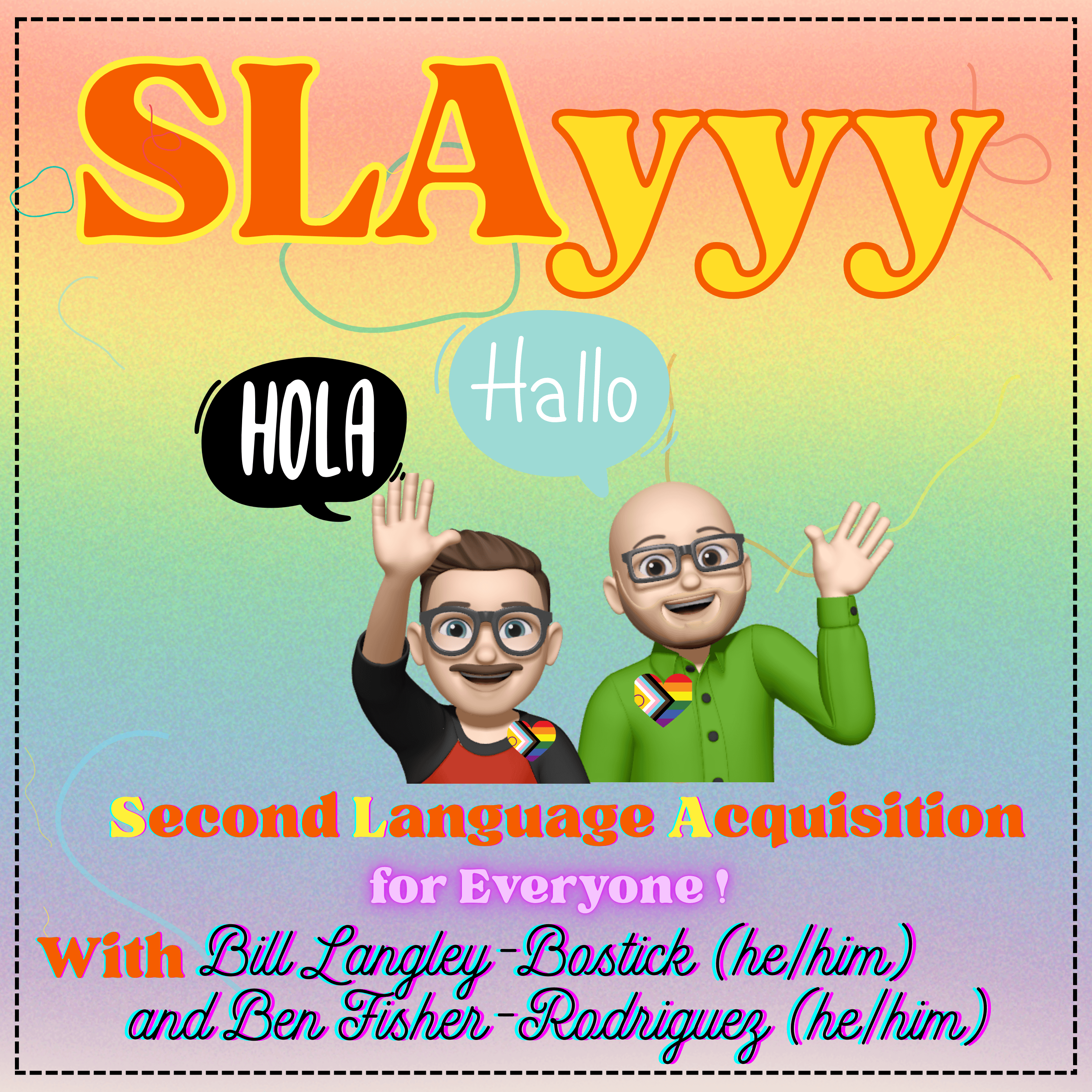
Conversations about Language Teaching
"Conversations about Language Teaching" is a podcast of unscripted discussions of language teaching, drawing on both research and classroom & online language teaching. If you like thinking deeply about issues of classroom language teaching and how those relate to research and theory, this podcast might be for you.
Reed & Diane, the hosts, base our knowledge of language teaching on research we've read & done, theoretical views of language acquisition, our experiences as language teachers and learners, and our observations of language teaching in the US and elsewhere. We like to help build bridges among teachers and researchers and view ourselves as part of both communities. We collaborate on projects & like talking about language teaching & learning, and decided to have some of those conversations in a podcast format. Here it is!
A transcripted, video version of the podcast is on YouTube here: https://www.youtube.com/@ConversationsaboutLanguage
More about Diane: https://sites.google.com/view/dianen/home
More about Reed: http://www.reedriggs.com
Conversations about Language Teaching
Episode 26: Children’s Books & Reading for Vocabulary Growth
Episode 26: Children’s Books & Reading for Vocabulary Growth
Show Notes
The Mandarin Companion blog has concise & helpful information about Extensive reading (ER) and 98% known language. This post also describes why children’s books are not necessarily suitable for second language learners:
https://mandarincompanion.com/7-mistakes-about-extensive-reading/
Intensive reading & extensive reading compared in a concise post by Mandarin Companion: https://mandarincompanion.com/reading-pain-or-reading-gain-reading-at-the-right-level/
The podcast “You Can Learn Chinese” also has several episodes related to extensive reading, intensive reading, and other information about learning (particularly) Chinese with a lot of relevance to learning any language: https://mandarincompanion.com/you-can-learn-chinese-podcast/
Narrow reading:
Krashen, S. (2004). The case for narrow reading [J]. Language Magazine, 3(5), 17-19. https://sdkrashen.com/content/articles/narrow.pdf
Renandya, W. A., Krashen, S., & Jacobs, G. M. (2018). The potential of series books: How narrow reading leads to advanced L2 proficiency. LEARN Journal: Language Education and Acquisition Research Network, 11(2), 148-154. https://files.eric.ed.gov/fulltext/EJ1225871.pdf
English language TV shows used for language learning – some examples:
10 US or UK TV shows and ideas for learning English from them: https://www.bsceducation.com/blog/best-tv-shows-for-learning-english/
The Office (US version of the show) https://diziyleogr
Intro & outro music selected from "23 Light Years" by CavalloPazzo
Conversations about Language Teaching
Diane Neubauer, PhD & Reed Riggs, PhD
"Conversations about Language Teaching" is a podcast of unscripted discussions of language teaching, drawing on both research and classroom & online language teaching. If you like thinking deeply about issues of classroom language teaching and how those relate to research and theory, this podcast might be for you.
Reed & Diane, the hosts, base our knowledge of language teaching on research we've read & done, theoretical views of language acquisition, our experiences as language teachers and learners, and our observations of language teaching in the US and elsewhere. We like to help build bridges among teachers and researchers and view ourselves as part of both communities. We collaborate on projects & like talking about language teaching & learning, and decided to have some of those conversations in a podcast format. Here it is!
More about Diane: https://sites.google.com/view/dianen/home
More about Reed: http://www.reedriggs.com
Watch on YouTube where episodes are captioned:
https://www.youtube.com/@ConversationsaboutLanguage
We welcome support for the podcasting costs. See "Support" here: https://conversationsaboutlanguage.buzzsprout.com/2325378/supporters/new
Podcasts we love
Check out these other fine podcasts recommended by us, not an algorithm.

Growing With Proficiency The Podcast
Claudia Elliott, World Language educator
SLAyyy: Second Language Acquisition for Everyone
Ben Fisher-Rodriguez, Bill Langley, Bryan Smith
The Motivated Classroom
Dr. Liam Printer
We Teach Languages
Stacey Margarita Johnson
Hacking Chinese Podcast
Olle Linge
You Can Learn Chinese
Jared Turner


